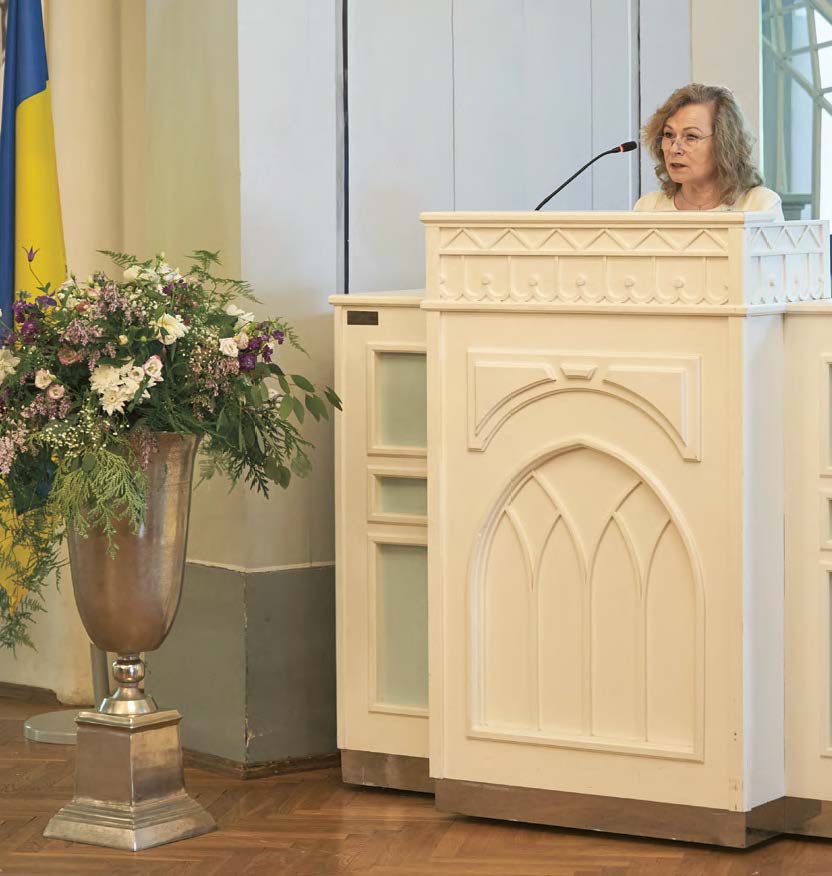Raamatukogumälestusi
Tartu Ülikooli raamatukogu 220. aastapäeval peetud kõne
Abstract
Reminiscences about the Library.
Speech made at the Festive Assembly to mark the 220th Anniversary of the UT Library
Since I was a child, the library has been one of the most important spiritual temples for me, the nature and meaning of which reveals itself in many ways.
By the age of four, I had read out to my grandparents almost all the books found at home, and my grandmother took me to the Tallinn Children’s Library. The days became exciting again, although the shelving system became familiar very quickly, and I found myself time and again borrowing the already read books. One day the kind librarian looked at me thoughtfully. „You are a strange child,” he said, and signed me up to the section of adult literature. The moment I stepped on the threshold of the new labyrinth was the peak of my entire life so far.
When I entered primary school, I found a door in the cloakroom in the school basement that led to the library. It was a veritable Graveyard of Forgotten Books, where the scent of the old days still lingered. In this literally underground chamber, you could find the almost complete Golden Series of Children’s Books and many other fascinating volumes that had long since been weeded from the city library collections. Unfortunately, changes came to this library as well. I guess by the next fall, the quiet fairy librarian with the head of silver grey hair had left. Together with her, all the old volumes and their peculiar smell evaporated from this treasure room in one summer. The shelves were filled with only the dull mandatory literature, which was lent to pupils by a lively leader of young pioneers. This way, the door of one of the libraries closed quietly and for good on me.
When visiting their friends with my parents, the conversation often turned to topics that I did not find interesting. In such cases, I politely slipped away from the table and, with the kind permission of the family, explored their home library. It was a great opportunity to discover new authors, their voices, hints and whispers in a relaxed atmosphere. In such hidden gardens, I could usually find some unknown, bitter and sweet, sometimes even forbidden fruits, and exciting hidden springs.
My mother worked for many years at the music department of the Estonian National Library. After school, I often ran up to Toompea, to the library building, which now houses the Finnish Embassy, chose a record, put on headphones and sat in the reading or, actually, the listening room, where windows offered an amazing view of the red roofs of the old town. I listened to classical music and solved my homework, and sometimes even wrote some poems, simply for fun. The world with its problems remained below in the downtown, I could observe the ever-changing clouds above the church towers and the sea stretching to the horizon, and have the sounds carry me.
I believe that the library is also a kind of a holy place where you can gradually get rid of selfishness and practice devotion. The work of a librarian is a labour of love comparable to that of a teacher and a gardener, it is constant attention and care, so that the oil in the lamp does not run out, that the light does not go out, that all stored intellectual treasures last, grow and offer replenishment from generation to generation.
From the bottom of my heart, I thank the keepers and managers of all libraries, an unseen myriad, who have taken care of the indestructibility of the Estonian spirit throughout the ages and are still doing it today. The significance of their work is unimaginably great.
Downloads


